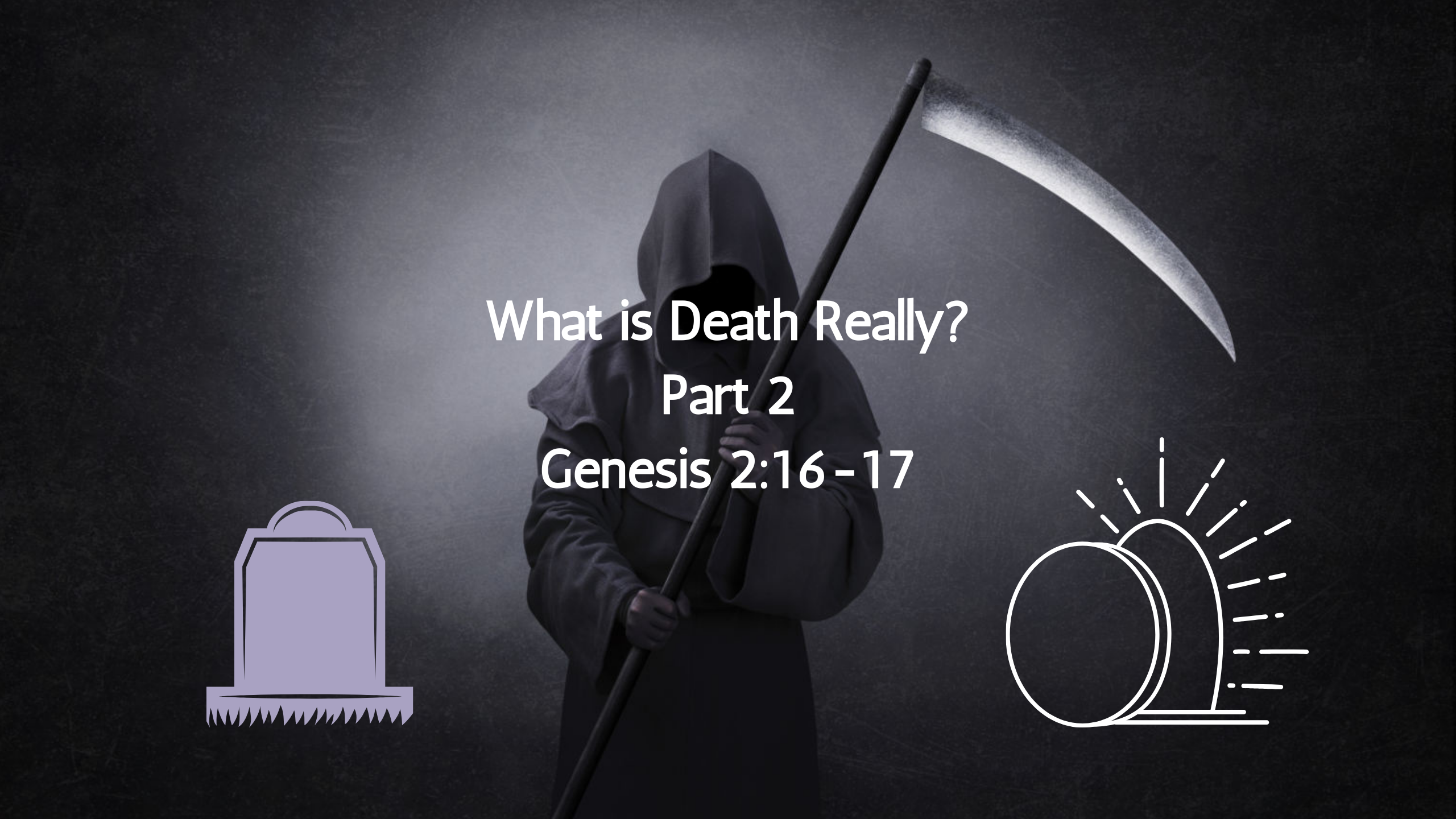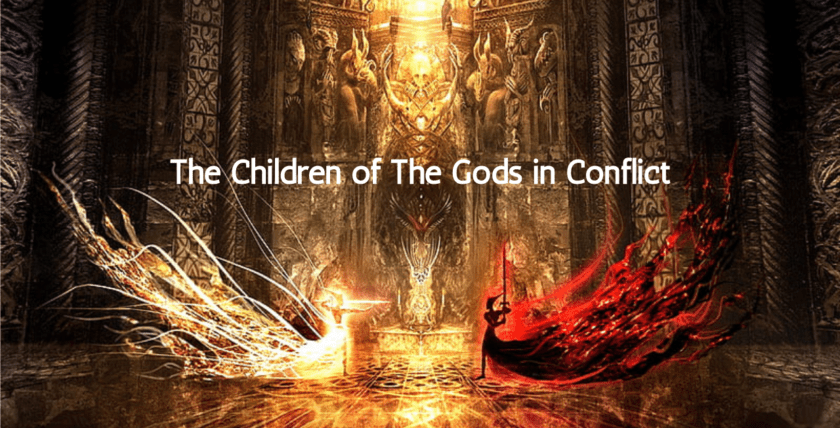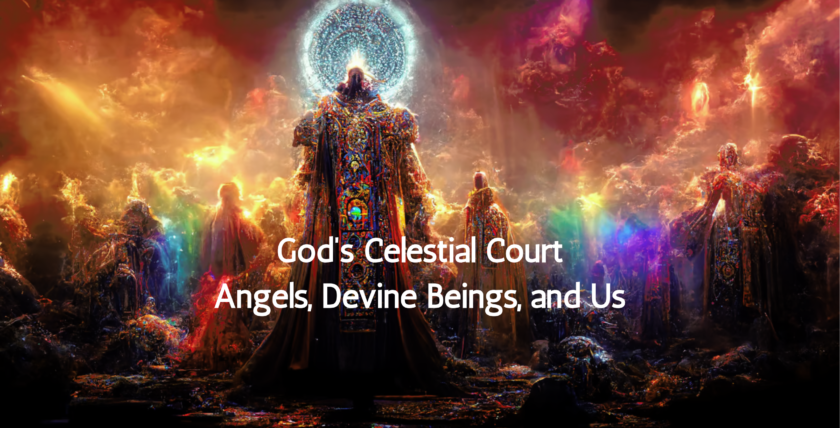Our focus at Sonday Life is to let the Spirit of God, through the Word, live in us and change our hearts so that we reflect the image of God to others in our daily lives. In the beginning, God created man in his image (Genesis 1:26-27). We can reflect the image of God to the world because Christ is the image of God, and we live in Christ. In future episodes, We’ll discuss living “in Christ.”
In the last episode, I talked about the different concepts the Jews had about death. We also looked at the Babylonian concepts of death, the Medo-Persians, the Greeks, and the Romans. We looked at all the ancient cultural concepts about death because these kingdoms and nations were influential on the Jews due to wars and captivities.
Jewish Cultural Influences on Death:
Pharisees believed in the resurrection.
Sadducees didn’t believe in the resurrection.
Essenes believed in an afterlife and a final judgment.
Priests were Levites and sons of Aaron who focused on Temple service.
The Nations believed all sorts of things about death and an afterlife.
Jewish people believed a little bit of everything (Like us today).
Was death darkness, nothingness, purgatory, hell, heaven, or oblivion?
This is Part 2 of the last episode, What is Death Really? When I started this, I was planning on a 6 part series about Death, Resurrection, Hell, and Heaven, but these are crazy big subjects to cover properly. I want to give you the right information because we must have the proper Biblical concept of death to understand the resurrection, hell, heaven, and eternal life.
I’ve been asked why I spend so much time talking about the Jews. What do the Jews have to do with us as Christians? Why should we care what the Jews thought about death? I really can’t overemphasize this point: If you want to know the fullness of the Gospel of Christ and our place and future in God’s kingdom, then you have to see and hear the Word of God through Jewish eyes and ears.
The writers of the New Testament were Jewish by birth or influence. They wrote their letters and books as they interpreted the events of Christ and the Apostles through the lens of the Old Testament Law, Writings, and Prophets.
It was through the living and dying of the Jews that we have what God wanted the entirety of humanity to know about him. Through the Jews, we know the identity and character of the one true God. We have a great debt to the Jews for the Gospel of our salvation. Paul told the Roman Christians that believers in Christ have been grafted into the Olive Tree that is Israel. In fact, the true Israelites believe in Jesus as the Son of God, and those who don’t believe in Jesus Christ are cut off the Olive tree and separated from God.
We can’t effectively apply God’s Word to our lives until we first know what it means to them. The story of Israel is our story also; seeing this in God’s Word through the Spirit will change our entire perspective of what is happening around us.
With that said, in the last episode, I asked, “Did Adam and Eve die the “day” they ate from the tree of the knowledge of Good and Evil?” I encourage you to read the first four chapters of Genesis. In Genesis 1:24-31, God created all the creatures that live on the ground and the air, including man. The difference was he created man in his own image. He told Adam and Eve to rule over all the animals of the earth. Nothing was killed for food because everything ate the plants and fruits God provided.
Nothing in the description of the creation says anything was created to live forever. On the contrary, if nothing died, the earth would have become overpopulated thousands of years ago. Therefore, man wasn’t created to live forever on the earth.
Another interesting point of creation is Genesis 2:4-15, which tells us Adam wasn’t created in the Garden. He was created before God planted the Garden. After God created the garden, Adam was placed in it to tend and care for it. The Tree of Life was in the garden with every kind of tree, including the tree of the knowledge of Good and Evil.
In Genesis 2:16-17 God tells Adam and Eve they are free to eat from any tree of the garden, but they weren’t supposed to eat from the tree of the knowledge of good and evil because if they did they did, that day would certainly die.
Again, back to my question, “Did Adam and Eve die the day they ate from the tree of the knowledge of good and evil?”
What really happened (Genesis 3:1-5)? I can’t emphasize enough it’s the little details that get twisted that cause us so much confusion and misunderstanding.
The serpent didn’t lie to Eve; he just spun God’s words to fit his purpose, which was to confuse Eve. The serpent never said God said those words. He just asked if God really said those words. Eve had to think about her answer, and she knew God didn’t say they couldn’t eat from any tree in the garden except the tree in the middle of the garden. That tree they weren’t even allowed to touch, or we’d die. Did Eve even know what death was? Adam and Eve never asked God what death was. What we don’t know can be used against us, and the serpent used that lack of knowledge against Eve by telling her she would certainly not die.
Was the serpent lying? Did they die the day they ate from the tree? Well, we know they didn’t physically die. Did God lie to them? That’s impossible, so we have to see how they died. What were the consequences of their disobedience (Genesis 3:21-24)?
They were banished from the garden and prevented from taking from the Tree of Life. Therefore, the death they died on the day they ate from the Tree of the Knowledge of Good and Evil wasn’t a physical death but a spiritual death because they were separated from God and no longer had access to the Tree of Life because God is life.
In Isaiah 59:1-2 the prophet shows sin separates mankind from God.
What did Adam and Eve do after they ate from the tree? They covered their nakedness, and they hid themselves from God. They tried to cover the evidence of their sin (their nakedness), and they hid. Their sin caused a separation between man and God, the giver of life. Since man, as a creature, didn’t have physical everlasting life. Therefore, the only death man could have suffered on the day he ate from the Tree of the Knowledge of Good and Evil is spiritual death because he was permanently separated from God. The sin of Adam and Eve separated them from God, and they died spiritually because they had no hope of eternal life.
The sins of the Jews separated them from God also, and they were spiritually dead, but God, through Moses, gave them an annual atonement to forgive sin, pointing to a permanent salvation for sin through the promise of a Messiah.
Our sin separated us also from God, and we were spiritually dead (Ephesians 2:1). We were separated from God by sin and dead spiritually. Just like Adam and Eve. Just like the Jews. But God made a way to remedy our separation and death (Ephesians 2:4-5). Did God make us physically alive or spiritually alive? He says we were made alive “with” Christ even though we were dead in trespasses. Were we physically dead in trespasses or spiritually dead? Spiritually dead. Therefore, making us alive is also spiritual.
Conclusion:
Did Adam and Eve die the day they ate from the Tree of the Knowledge of Good and Evil? Yes, they died spiritually because they were separated from God.
Then what is death really? Death is separation from God, and therefore death is spiritual. We are dead in our sins long before we die physically. But if we believe in Christ, we are forgiven, and our separation from God is removed because we are made alive with Christ and in Christ. This is a spiritual life that is everlasting.
But if a person doesn’t believe in Christ, then they remain separated from God, and therefore, they are spiritually dead, and when they die, they have no hope of life but only death.
Though we die physically, those who believe in Christ are alive spiritually forever in Christ. But those who don’t believe in Christ are already dead, though they are alive physically.


